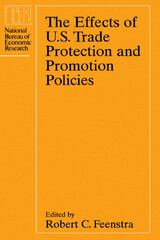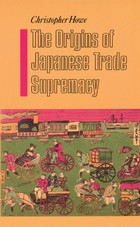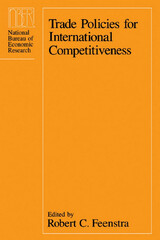

The volume concludes that some policies can act to both protect imports and promote exports, that the threat of protectionist policies can often have effects that are as pronounced as their implementation, and that regulatory policy has as great an impact on trade and investment patterns as does trade policy itself. It will be of crucial interest to international trade economists, policy specialists, and political scientists.

In our increasingly globalized world, U.S. trade policy stands at the intersection of foreign and domestic affairs. This book explains trade policy in terms of domestic politics, presenting a concise account of its origins and political significance.
Although trade policy is a component of foreign policy, Philip A. Mundo explains how it is rooted in the domestic policy process and carries with it enormous implications for domestic affairs. He reviews the growing importance of trade policy since World War II — particularly over the past twenty years — and shows how recent policies like NAFTA are shaped by the domestic agenda.
Mundo explains trade policy as the product of a three-stage process comprising agenda setting, program adoption, and implementation. He reviews this process in terms of the ideas that inform trade policy, the interests that seek to influence it, and the institutions that shape it. He also addresses the importance of specific measures, such as administrative relief and trade sanctions.
This book distills the essence of the trade policy process into a concise, innovative framework accessible to students and general readers. With the growing importance of trade policy, it makes explicit many of the subtleties surrounding policymaking while fully explicating the legal and international context in which trade operates.

"Thoughtful, well-organized, and lucidly written and reflects many years of painstaking research in different literatures."—Business Horizons
"The best analysis yet in English of the role of technology in Japan's emergence as a global economic power."—David J. Jeremy, Technology and Culture
"An important addition to Japanese economic history and the concept of creating relative advantage in trade."—Richard Rice, Journal of Asian Studies
"No other work in English approaches Christopher Howe's combination of a sweeping historical perspective with a comprehensive yet in-depth analysis of factors underlying Japan's pre-1940 economic 'miracle.' . . . [An] illuminating study."—Steven J. Ericson, American Historical Review

In Trade Policies for International Competitiveness, Robert C. Feenstra collects seven papers from the conference, each accompanied by discussants' comments, and adds a helpful introduction. Some of the issues considered by contributors are effects of macroeconomic and strategic foreign policies on competitiveness; the recent influx of foreign direct investment in the United States, primarily from Japan; the extent to which Japanese trade patterns are a reflection of underlying factor and endowments rather than trade barriers; and the market structure of Canadian industries, including applications for ongoing U.S.-Canadian free trade negotiations. Topical and provocative, these papers will be of value to economists, policymakers, and those in the business world.
READERS
Browse our collection.
PUBLISHERS
See BiblioVault's publisher services.
STUDENT SERVICES
Files for college accessibility offices.
UChicago Accessibility Resources
home | accessibility | search | about | contact us
BiblioVault ® 2001 - 2024
The University of Chicago Press









